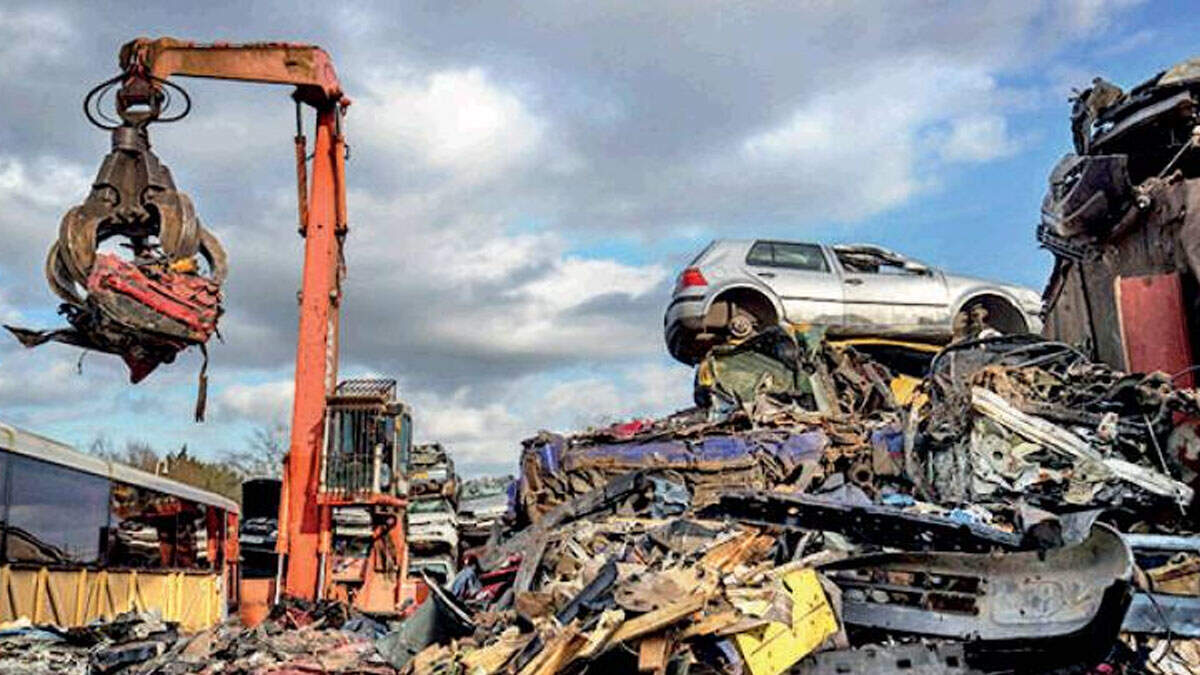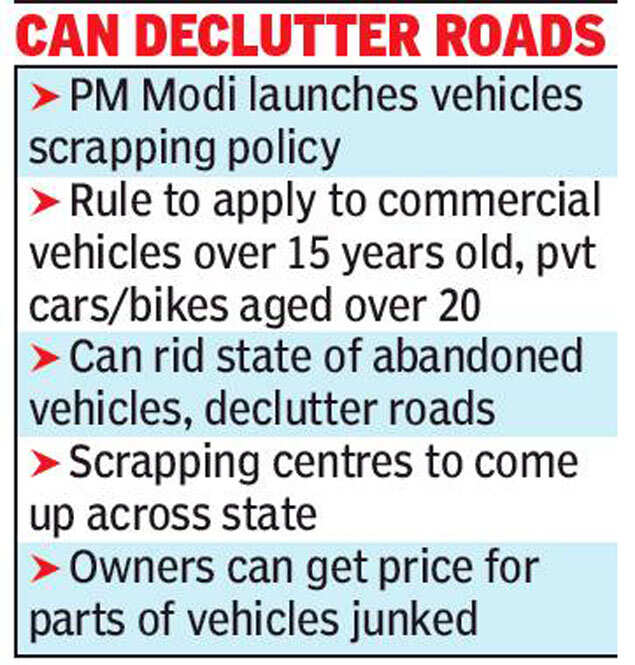 MUMBAI: Nearly 20 lakh old vehicles in Maharashtra can be scrapped to reduce congestion and pollution once the state comes out with its standard operating procedure in a few days on the vehicle scrapping policy. The policy was nationally launched by PM Modi on Friday.
MUMBAI: Nearly 20 lakh old vehicles in Maharashtra can be scrapped to reduce congestion and pollution once the state comes out with its standard operating procedure in a few days on the vehicle scrapping policy. The policy was nationally launched by PM Modi on Friday.
“Although the Centre has launched the policy, the state will have to issue its own guidelines. We have studied the draft policy and issuing the SOP should not take much time,” said state transport commissioner Avinash Dhakne. Another official said the state government will implement the central policy, which offers incentives for scrapping.
Scrapping will be voluntary for owners. The rules will apply to commercial vehicles over 15 years old and private cars/bikes older than 20 years. One advantage of the policy is it will help tackle the problem of abandoned vehicles, or ‘khataras’. “The local municipal bodies can be the implementing authorities to clear such khataras from the road and send them to government-approved scrapyards. It will help declutter the roads and increase the carriageway,” said Dhakne.

A significant volume of vehicular population will go to scrap as there was no such policy before this. “This policy mandates that we scrap old and polluting government vehicles by 2022, heavy vehicles by 2023 and private and commercial vehicles have to be sent to the junkyard by 2024,” the senior transport department official said.
Once the state comes out with guidelines, the transport department will authorise setting up of scrapping centres across Maharashtra. Each scrapping centre will be a one-stop solution for phasing out any private or commercial vehicle. The entire process will be digitised, with CCTV cameras filming the scrapping.
For example, a private car owner whose vehicle is over 20 years old can just hand over the car to an authorised vehicle scrapping centre, sit back and relax. The scrapping process will be done scientifically, the spare parts can fetch him a price, the oil, coolants and other material which can be polluting will not go back to the environment.
During the scrapping process, the chassis number will be taken out before the scrap is sent for recycling. This will expedite the deregistration process. Also, the vehicle data will be uploaded on the Vahan portal and deregistering the car will be completed on the same day.
The scrapping centre will remove the car parts and segregate them into rubber, plastic, iron, etc. Owners can get price for tyres, battery, tool kit, CNG cylinders, etc. The final certificate for scrapping/deregistration will be sent to the owner digitally.
At present, there is a green tax in Maharashtra for vehicles over 15 years. Once the new scrappage policy is implemented, RTO will conduct stringent checks to ensure people pay green tax and also get fitness certificates for older vehicles.
